The recent Toronto Maple Leafs versus Winnipeg Jets game got slightly out of hand. Auston Matthews and Pierre-Luc Dubois got into a relatively one-sided scuffle, Rasmus Sandin was kneed by Neal Pionk, and due to the non-call, Jason Spezza kneed Neal Pionk in the head. This led to a two-game suspension for Pionk, and a six-game suspension (to be appealed) for Spezza. But all of this could have been avoided with some sharper officiating.
This is not the first time fans have been outraged by NHL referees, and it’s about time the NHL did something about this, as there’s an argument that their lack of transparent action is starting to diminish league accountability. But what should they do?
Officiating is Hard
NHL officials have arguably the toughest job in all of sports. Hockey is an extremely fast game. Sticks and pucks flick and fly all over the ice. Officials have to jump into brawls to break up fights. They have to be in the heat of the action, but they have to be out of the way at the same time. They deserve much more credit than they get.
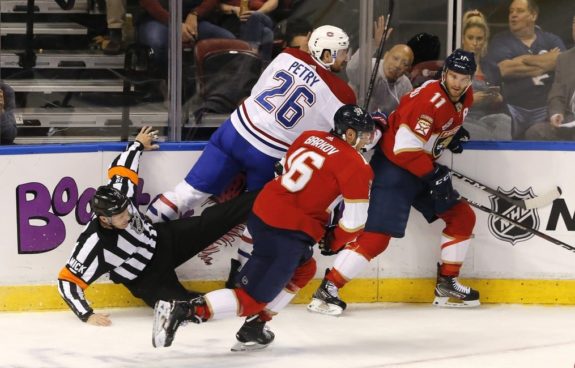
But when they get calls blatantly wrong — and get called out by coaches or players — the teams, rather than the referees, are slapped with fines. Surely there’s something wrong with this precedent, and there should be options for the league to hold their officials accountable. But what is causing their missed calls?
The NHL Rule Book
Let’s start with the law they are asked to uphold: the NHL rule book, which is outdated at best. While the league has recently taken a respectable stance on headshots, they’ve left archaic rules in their bible.
A couple years ago, Sean McIndoe of The Athletic touched on some of the sillier rules in the book (from Down Goes Brown: Want the NHL to just call the rulebook exactly as written? Be careful what you wish for, The Athletic, June 4, 2019). For example, rule 75.2(i) forbids swearing. But if you’ve watched a game in the past five years, you’ve probably heard an uncalled “f**k” on a hot mic.
No hockey fans actually want officials to make game-changing calls based on swearing, so there’s no reason to keep that rule in circulation. This, with other adjustments, would make officiating much easier, and could allow referees to follow the letter of the law.
Managing the Game
Even if the NHL completely revamps the rule book, it’s debatable whether fans would see any change in on-ice officiating. This is due to the fact that NHL referees “manage” games, rather than make every call they see.
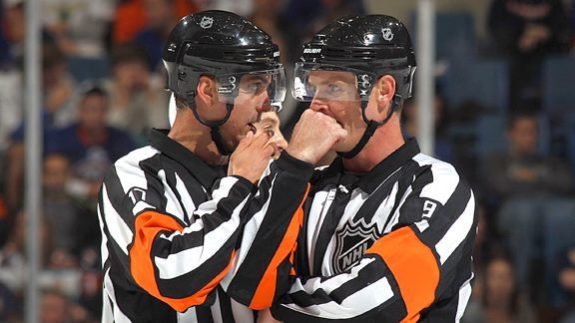
The purest example of this is the Tim Peel hot-mic incident, in which Peel stated that he, “wanted to get a f**king penalty,” against the Nashville Predators. Afterwards, he was quickly fired, with NHL brass seemingly surprised that officials manage games in this way.
To prove their surprise, Colin Campbell, the NHL’s senior vice-president of hockey operations, stated (from NHL dumps referee Tim Peel after ‘f–king penalty’ hot-mic debacle, New York Post, March 24, 2021):
“Tim Peel’s conduct is in direct contradiction to the adherence to that cornerstone principle that we demand of our officials and that our fans, players, coaches and all those associated with our game expect and deserve. There is no justification for his comments, no matter the context or his intention, and the National Hockey League will take any and all steps necessary to protect the integrity of our game.”
Colin Campbell
Obviously, I and most NHL fans realized the farce of his statement immediately. Managing the game has long been accepted, and make-up calls continue to exist.
Make-up calls refer to situations where officials deem that it’s time to call a penalty to “make up” for a prior officiating mistake or general lopsided penalization of one team over another. For example, if Team A commits three infractions in the first period, officials might attempt to penalize Team B early in the second period. This is a ridiculous standard, as some teams should simply be penalized more if they commit more infractions.
Other Factors That Lead to Inconsistency
Not only do officials attempt to manage games, the choices they have to make throughout a game can lead to inconsistencies.
For example, some calls seem to depend on if the infraction affected puck possession. Another factor might be whether or not the infraction was committed during the first few minutes of the game, or the last few minutes of the game. Furthermore, whether it’s the playoffs or not can affect officials’ decisions.
These should be non-factors — a penalty is simply a penalty, regardless of the other factors.
French-English Divide
A study in 2016 concluded that French-Canadian officials call disproportionately more penalties against English-Canadian players. Although a number of explanations could be made about the reasoning behind the numbers, including whether English-Canadian players are proportionally more aggressive, or that English-Canadian referees are more lenient to English-Canadian players, the study was still conclusive.
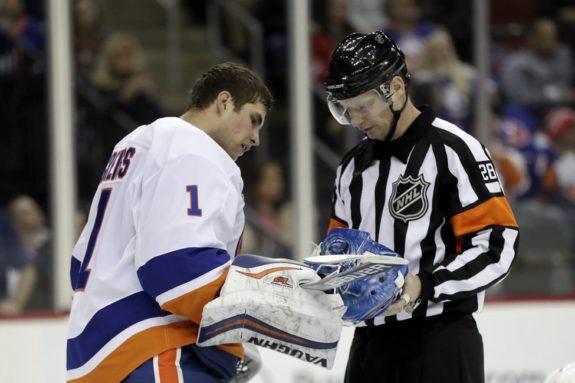
(AP Photo/Julio Cortez)
In my opinion, this study shouldn’t be the instigator of outcry, but rather, it highlights the sheer number of factors involved in judging a referee’s performance.
How the NHL Penalizes Officials
In the history of sports, there have only been a few public penalizations of officials. Tim Donaghy, who recently made his professional wrestling debut as “a crooked referee,” is one of the more famous scandals and firings, even resulting in a prison sentence. He was caught fixing NBA games for money.
Related: NHL Must Stop Punishing McDavid & Other Stars For Being Too Good
But aside from Peel, there aren’t any public officiating penalties in the NHL. But should the NHL penalize officials?
Arguably, they already do. Peel, 22 years into his career and months before his retirement, was fired for his hot-mic admission. But prior to that, he was never assigned to a Stanley Cup Final game, the pinnacle of NHL officiating. So, if we add two and two together, NHL officials are privately penalized, and one way they are reprimanded is by missing out on big assignments, like the Stanley Cup Final. But is this enough? Should the NHL do more, and do it publicly, like they do for players?
Options for Public Penalization
There are a number of options for the NHL to instill transparency to their penalization of officials. Some are more realistic than others. Officials could be brought to post-game press conferences, in the same way that players and coaches are. They could be asked by reporters to explain their on-ice choices, their missed calls, and defend themselves.
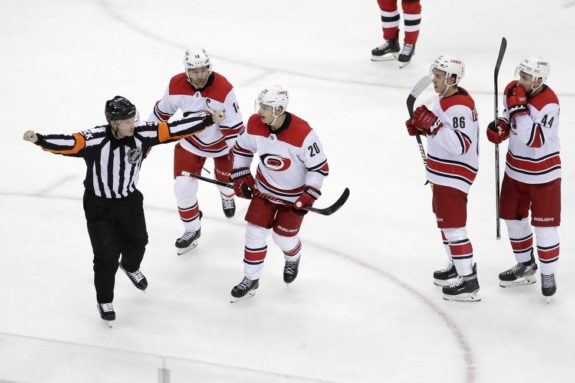
This might not be the best option. Firstly, press conferences for officials would be flat-out boring most of the time. The media, nor the fans, care about officials’ performances, unless they are outraged by them. Secondly, there would be huge push-back from officials, as they would likely be scrutinized relentlessly, for even small mistakes, adding stress to an already stressful job.
Another option could be to publicly fine officials, similar to the way that players are fined when they perform inexcusable infractions. The league could reasonably fine officials for only the major mistakes, and in particular, for instances where they let the game get out of hand physically.
While this seems like a fair measure at first, I think it too will lead to push-back from officials, as it seems like an overreach considering that they already aren’t paid that well for a very difficult job. It could lead to less official recruitment in the future.
Another option might be to make it legal for players and coaches alike to publicly criticize officials, within reason. It seems odd that officials can make egregious errors, yet teams aren’t allowed to talk about it.
This might not be a good option either, as again, officials have a tough job as it is, and the goal of any rule changes should be to foster better on-ice performance. Open critique of officials seems to have no direct connection to better officiating in the future.
What the NHL Should Actually Do
Start from the top. Fire NHL director of officiating Stephen Walkom, as he is at least partially responsible for the way that officials call the game. Furthermore, hire someone who wants the game to be played fairly and transparently.
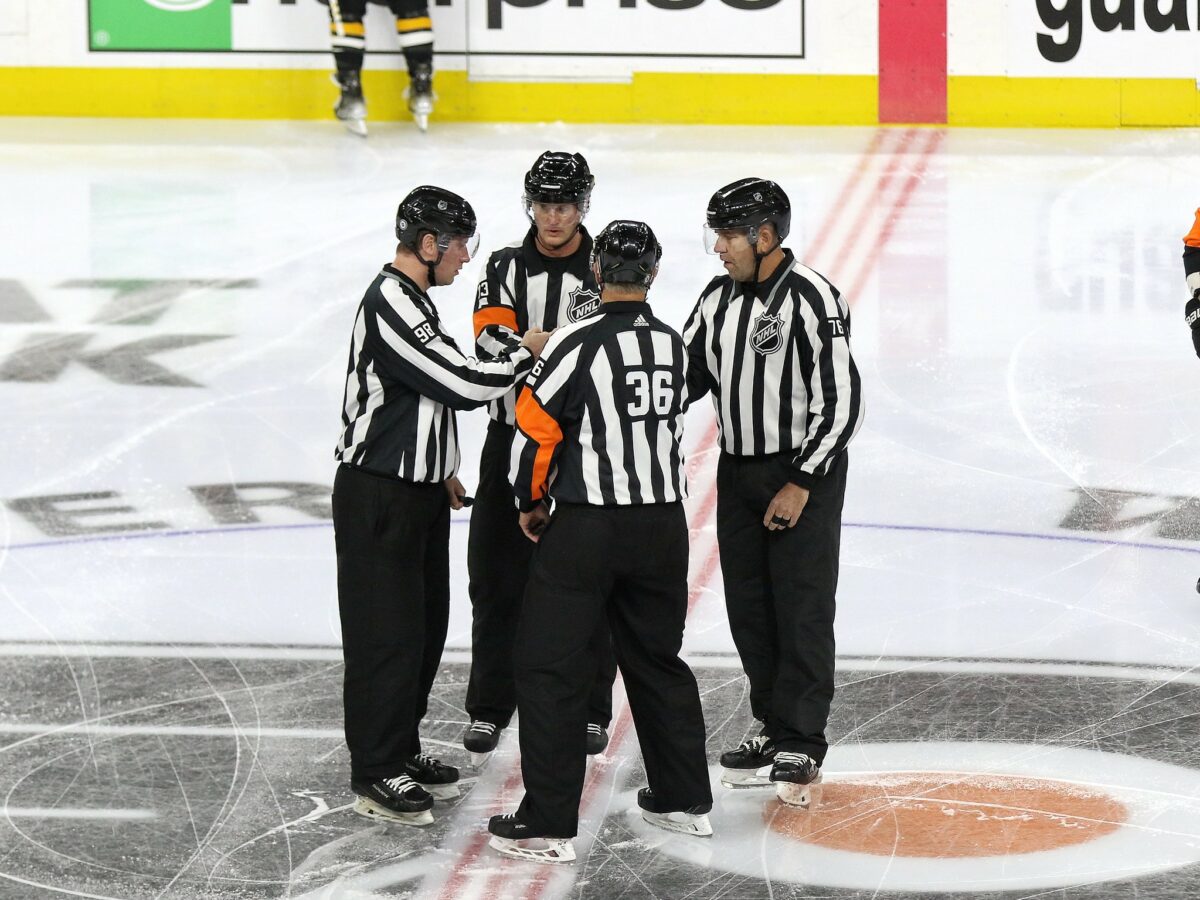
Over the offseason, revamp or re-write the rule book. Make the rule book clear and concise, and keep only the rules that referees actually intend on enforcing. Anything that is deemed “too soft” to call or unreasonable should simply be removed from the rule book.
Meet with all of the referees to rewire their officiating styles. No more make-up calls, no more managing games, simply make it easier for them to do their job. Afterwards, send a memo out to all of the teams informing them of said-change.
The worry that this will lead to an exorbitant number of penalties is misguided; the players will adjust. Similar stink was made when the league cracked down on stick infractions a couple of years ago, or this year when they decided to keep a tighter leash on cross checking, but the players have adjusted.
Hold officials publicly accountable. Give them some lee-way, as it’s still a challenging job, but repeat offenders simply shouldn’t be allowed to continually influence game outcomes. The most realistic way to do this would be to hold monthly performance reviews that lead to actual suspensions (or performance bonuses), and eventually firings. In addition, make the review process public, in the same way player suspensions are made public, with video evidence and all.
Simple missed calls would not be the main focus here (although if they are bad enough they might be). Rather the focus should be on missed calls that result in increased tension in the game, brawls, or other violent acts. Another focus could be on obvious examples of make-up calls or evidence of game management.
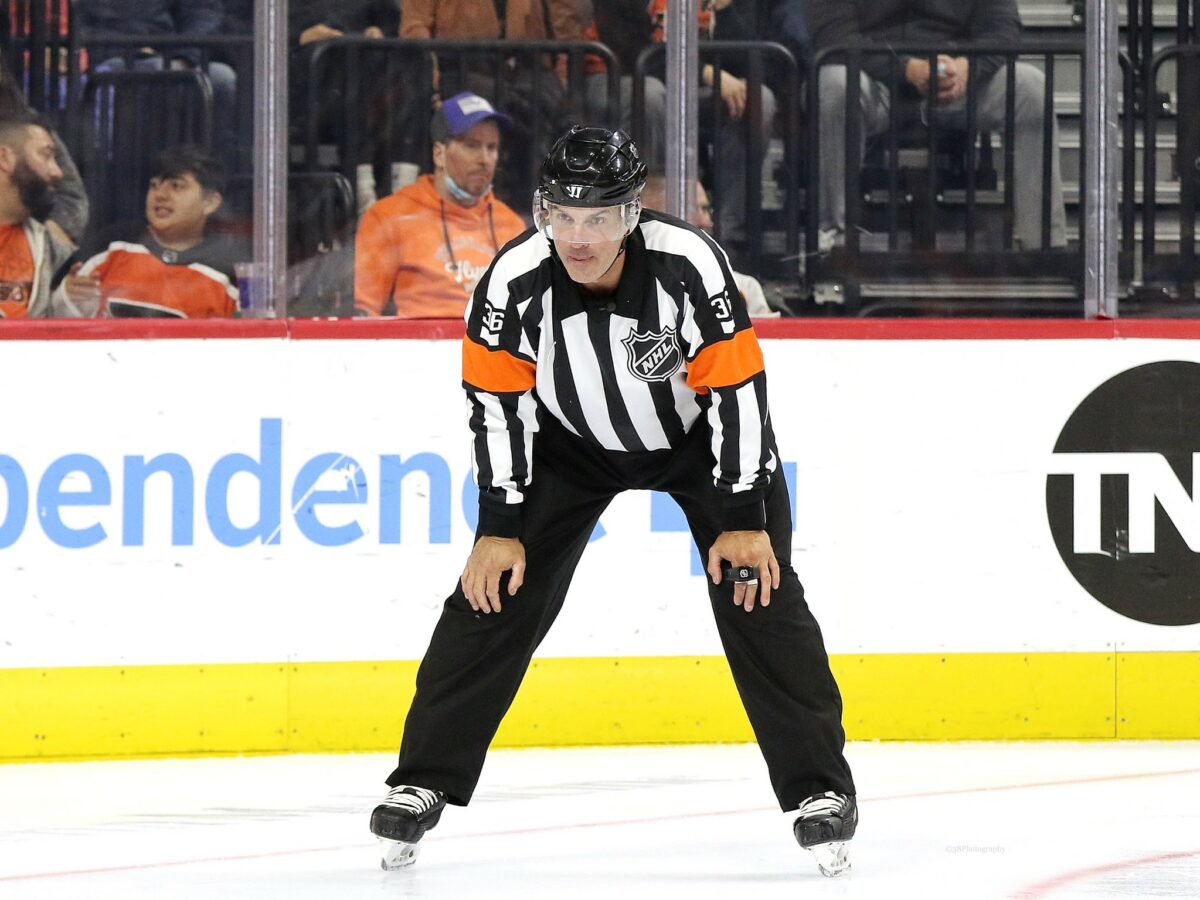
An example of official penalization could be a three-strike system. If an official makes three major mistakes in a calendar month, they are suspended for a week or two, and re-instructed on how the game should be called.
After three suspensions, the referee is simply fired. The NHL should be able to replace any fired officials with new ones, as the NHL should be the highest paid and most lucrative officiating job in hockey, especially if officials who handle tough games and situations properly are handed performance bonuses.
All of these changes, if instituted properly, should make a significant difference to how the game is officiated, played, and viewed. Officiating, as a profession, would be easier, games would be played more fairly, and fans would enjoy hockey for what it is, not leave games with a sour taste in their mouth. The game would be changed for the better, and possibly attract more fans, as the NHL pushes to become one of the top sports leagues in North America.